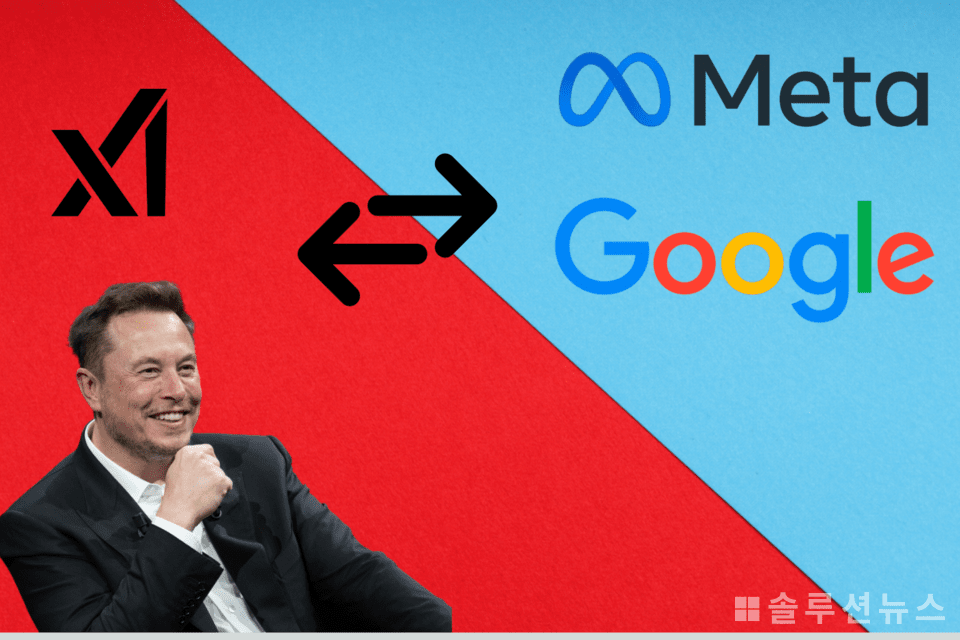Engineers from Google and Meta have moved to xAI.
xAI, an artificial intelligence company founded by Elon Musk, is intensifying the talent war in Silicon Valley by recruiting a large number of engineers from global big tech companies such as Google and Meta.
According to a recent report, xAI has hired at least 40 former Google employees since 2023, and 14 have joined from Meta since January this year. In particular, throughout 2024 alone, 19 engineers moved from Google to xAI. This influx of talent is considered to support the development of xAI’s core AI model, ‘Grok 4’.
Musk claims that Grok 4 will perform better than competing models released by OpenAI, Google, and Meta. This confidence, coupled with the talent acquisition strategy, is accelerating the growth of xAI.
Emphasizing a performance-driven culture over rewards.
Unlike competitors who retain talent with high salaries and stock options, Musk emphasizes a reward system based on performance. He recently stated on his social network service X account that “xAI is based on an ultra-meritocratic culture” and “significantly rewards outstanding performance.”
Musk added, “Many engineers from Meta are joining xAI even without an initial large reward,” and mentioned that “xAI has much greater growth potential than Meta.” This demonstrates that the company’s vision and performance-based reward system are significant factors in acquiring talent, rather than mere salary competition.
The pros and cons of talent movement.
Despite the active recruitment of talent by xAI, some key personnel have left. Co-founder Igor Babuschkin left the company to focus on AI safety research, and another co-founder, Kyle Kosic, moved to OpenAI. Uday Rudarraju, who was the head of infrastructure engineering, also left the company.

Despite this, xAI continued research and development based on the supercomputer ‘Colossus’ and unveiled the next-generation model Grok 4 last July. This model is equipped with 1.7 trillion parameters and supports multi-modal capabilities that can process not only text but also images and videos. It is also characterized by the ability to handle up to 256,000 tokens of context and provide in-depth knowledge in specific fields such as finance, medicine, law, and science.
The AI talent war is spreading throughout Silicon Valley.
xAI is not the only one striving to secure talent. Meta recently hired Shengjia Zhao, a co-developer of ChatGPT, as chief scientist, and also incorporated three researchers from the OpenAI Zurich research lab. Conversely, xAI has recruited researchers who participated in the development of Meta’s representative language model ‘LLaMA’.
Microsoft is also known to have hired over 20 former Google employees in recent months. Talent movement among major companies such as Google, Meta, OpenAI, Microsoft, and xAI is becoming a structural competition to lead the development of next-generation large-scale language models.
Implications for Korean companies.
The competition for talent acquisition surrounding the leadership in the global AI industry affects not only hiring battles but also the speed of technological innovation and national competitiveness. The fact that the new company xAI disrupted the market structure by attracting key researchers from big tech companies in just two years has significant implications for Korean companies.
Korea shows strength in semiconductors, batteries, and communications, but many evaluations indicate a relative shortage of AI research and development personnel. This case exemplifies the need for establishing large-scale research infrastructure, performance-based reward systems, and presenting long-term visions to avoid falling behind in global competition.